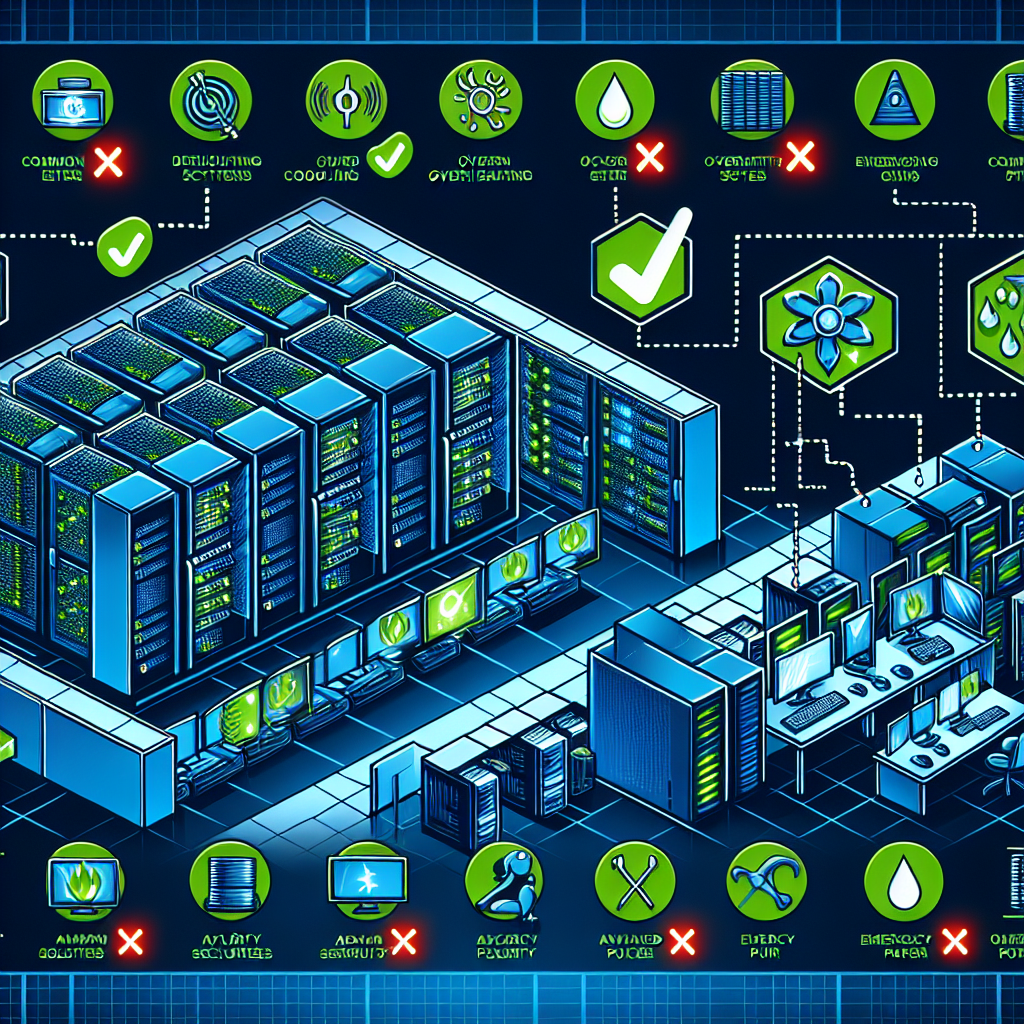Your cart is currently empty!
Common Data Center Incidents and How to Address Them: A Comprehensive Guide

Data centers play a crucial role in the operation of modern businesses, serving as the backbone of their IT infrastructure. However, like any other complex system, data centers are susceptible to a variety of incidents that can disrupt operations and compromise the security of the data they house. In this article, we will explore some of the most common data center incidents and provide a comprehensive guide on how to address them.
1. Power Outages
Power outages are one of the most common incidents that data centers face. These can be caused by a variety of factors, such as equipment failures, natural disasters, or human error. To address power outages, data center operators should have backup power systems in place, such as generators and uninterruptible power supply (UPS) units, to ensure that critical systems remain operational during an outage. Regular testing and maintenance of these backup systems are essential to ensure their reliability in the event of a power outage.
2. Cooling System Failures
Cooling systems are essential for maintaining the optimal operating temperature of data center equipment. If a cooling system fails, the temperature in the data center can quickly rise to dangerous levels, leading to equipment failures and data loss. To address cooling system failures, data center operators should have redundant cooling systems in place to provide backup in case of a failure. Regular maintenance and monitoring of cooling systems are also crucial to detect and address potential issues before they lead to a failure.
3. Physical Security Breaches
Physical security breaches, such as unauthorized access to the data center or theft of equipment, can compromise the security of the data housed within the facility. To address physical security breaches, data center operators should implement stringent access control measures, such as biometric authentication and surveillance cameras, to prevent unauthorized access. Regular security audits and training for staff on security best practices are also essential to ensure the physical security of the data center.
4. Network Outages
Network outages can disrupt communication between servers and devices within the data center, leading to downtime and data loss. To address network outages, data center operators should have redundant network infrastructure in place, such as multiple internet service providers and network switches, to ensure that critical systems remain connected in the event of an outage. Regular monitoring of network performance and proactive maintenance of network equipment are also essential to prevent outages.
5. Hardware Failures
Hardware failures, such as disk drive failures or server crashes, can lead to data loss and downtime in the data center. To address hardware failures, data center operators should implement a robust hardware monitoring and maintenance program to detect and address potential issues before they lead to a failure. Regular backups of data are also essential to ensure that critical information can be recovered in the event of a hardware failure.
In conclusion, data center incidents are a common occurrence that can disrupt operations and compromise the security of critical data. By implementing proactive measures, such as redundant systems, regular maintenance, and monitoring, data center operators can address these incidents and ensure the continued reliability and security of their data center operations.

Leave a Reply